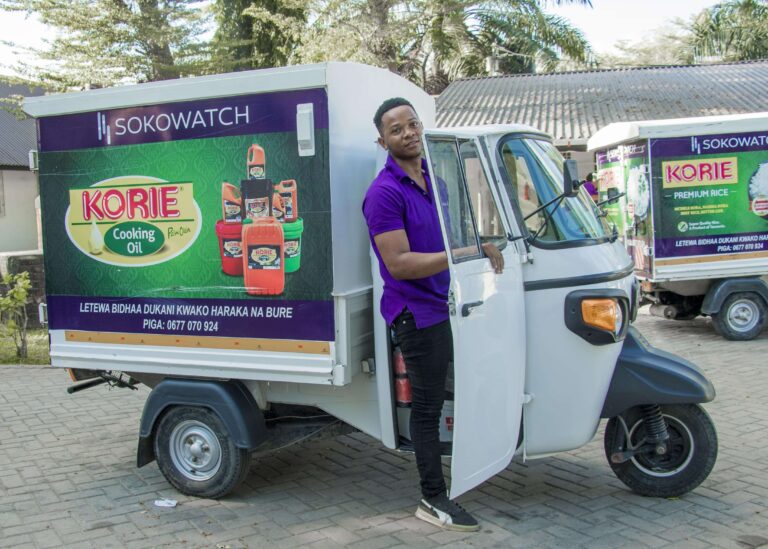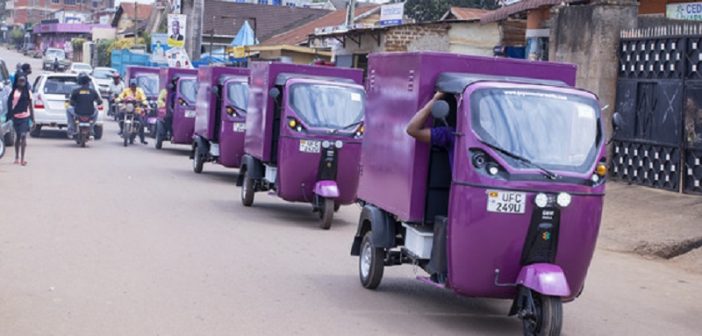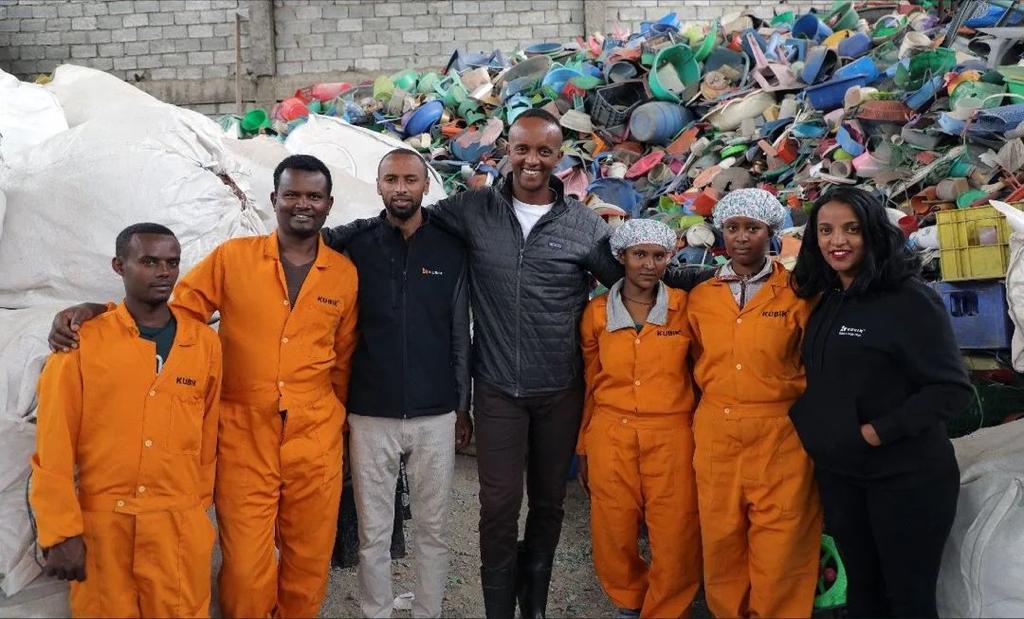Reinventing retail in the informal sector is the mission Daniel Yu has set himself with his start-up Sokowatch. The idea was born out of the desire to provide a model that would fit the needs of the thousands of informal vendors who lack the resources to source products, or access finance and advanced management tools. Through his structure, Daniel Yu wants to solve the problems linked to retailing on the African continent.
But Sokowatch is more than just an e-commerce platform specialising in supplying informal businesses. Based in Kenya, it was established in 2016 and has a strategy that has solved the problems faced by informal traders.

Rdeveloping the informal sector
Partnered with retail giants such as Unilever and Procter, Sokowatch now serves about 24,000 retailers in Kenya, Tanzania, Uganda and Rwanda. This success is due to the fact that it presents itself as a model tailored to the needs of local traders who represent over 10 million informal shops, which annually trade around $180 billion worth of goods. However, these local businesses, most of which sell basic necessities, often have stock problems or do not know where to turn for financing.
This is where Sokowatch comes in. It gives these small traders the opportunity to order goods on its platform from their phones, by SMS or via the mobile app, and have their items delivered on demand, without having to physically move. Orders are delivered by tul-tuks, tricycles that can easily reach the most remote areas.
Sokowatch for the logistical management of informal businesses
Operating in Kenya, Tanzania, Rwanda and Uganda, Sokowatch provides free delivery of essential goods to over 16,000 informal shops, allowing them to order goods at any time and receive them the same day.
Furthermore, thanks to the order history, Sokowatch is able to predict future orders and therefore can pre-stock tuk-tuks for quick delivery. This data also allows it to better organise its inventory, anticipate its customers' needs and improve its operations.
With its elaborate system, Sokowatch now supplies over 2000 shops across East Africa. Small local businesses see it as an efficient way to access a delivery service that allows them to supply their customers, without wasting time or spending a fortune.

Sokowatch assesses its customers, the retailers, based on historical purchase data, to give them access to credit and other financial services that are not usually available to informal businesses.
In addition, it provides multinational companies with a data-driven distribution network focused on the informal sector in emerging markets. Through individual agents equipped with proprietary mobile data collection tools, Sokowatch significantly increases sales and market coverage for companies.
Who is Daniel Yu, the founder of Sokowatch?
Daniel has a clear vision: to make Sokowatch the number one supplier of goods and services to informal businesses in Africa.
Daniel worked as a software developer for several start-up companies in the US and attended the University of Chicago where he focused on international studies and linguistics.
Particularly excited by the idea of allowing retailers to manage their orders and connect with suppliers via mobile phone text messaging, he eventually dropped out of university and moved to Nairobi, Kenya, to set up the first Sokowatch pilot.
He has received international recognition as the winner of the Prince of Wales Young Entrepreneur Prize, as a White House Emerging Global Entrepreneur, and as one of Forbes' 30 Under 30 Social Entrepreneurs through Sokowatch.
A company that stands out
Unlike Jumia, which has thousands of items in its catalogue, Sokowatch has chosen to limit itself to a hundred or so basic products, in order to guarantee better stock management and respect delivery times. As its founder explains, this start-up is at the service of players in the informal sector. The first objective is therefore to ensure that these small independent businesses have the necessary means to grow their assets. This can only be done by relying on a high-performance system that enables them to avoid losses, breakages and waste of perishable goods.
In addition, Sokowatch intends to expand into other parts of the continent, notably in West Africa, Senegal and Côte d'Ivoire. While the project will be implemented in 2022 in the country of Teranga, the company will start operating in Côte d'Ivoire by the end of 2021. A subsidiary has already been set up. And in these countries, the start-up is following the same logic, i.e. providing concrete solutions, which take into account the current realities, the difficulties faced by independent traders.
The goal in the next five years is to enable Sokowatch to be listed on the Nasdaq stock exchange. A gamble that it may well win, given that it is already among the most innovative companies in the world in 2021 according to the American magazine Fast Company. Each year, this media establishes the MIC (Most Innovative Companies) ranking, which honours companies that have found effective solutions to the population's urgent problems.
At its Series A launch, Sokowatch raised about $14 million. For its CEO, this represents a gateway to conquering other markets.





